
As all of you know, the rapid rise of social media outlets contributed to the mass misinformation crisis we suffer from in the present. Combine that with misplaced sentimentalism and a deeply disturbing need to preserve and maintain the fondness of youth into old age and you’ve got at least half of the problem with comics “history” as we know it- there just aren’t any people, you know, good at it.
I was beginning to evaluate another Roy Thomas interview when I realized this other conversation needed to be had, these other aspects of the problem needed to be addressed. It isn’t just a passive and indifferent audience of rabid pop culture enthusiasts who can’t be bothered to care about who created what and who stole what- it isn’t just the fact that all comic related websites either regurgitate falsehoods or don’t cover or correct misinformation at all, safely deciding to exist as glorified (and literal) press releases for publishers- no, it’s more than that.
It’s that there are no more historians. Not really.
Per the helpful (and admittedly easy to access Dictionary.com), a historian is defined as ‘a person who writes or studies history, especially one who is an authority on it.‘
Well, fab. That describes a whole mess of us, does it not? People who were moved and intrigued by the genuinely fascinating history of the comic book industry, people who sought out interviews with creators, articles on publishing history and so forth. But who is an authority on it? Per my credentials, an authority already knows what I know… if they’re claiming to be such a thing. I, for one, do not claim to be an authority. Which makes my recognizing of mistakes and questionable choices by said figures troubling, and which leads me to this rant.
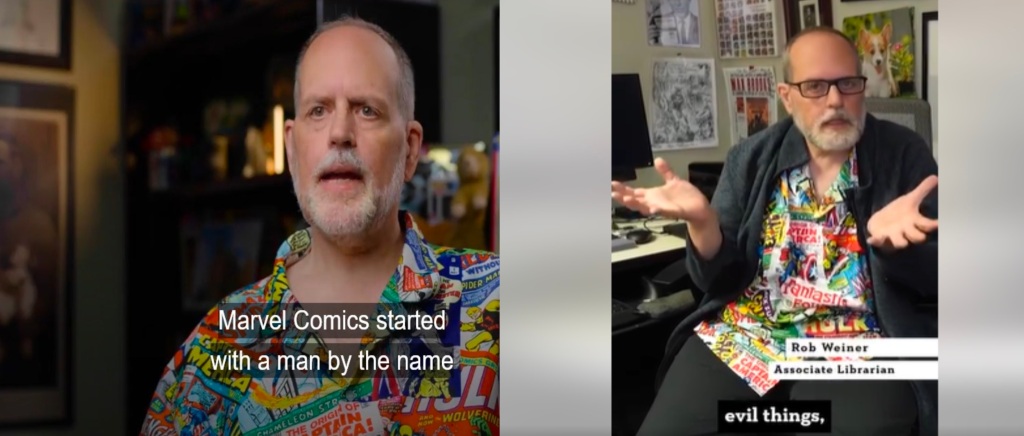
There’s a guy that’s been interviewed in a talking head capacity on some Marvel propaganda shows. He’d be very easy to mock due to his self-seriousness, deluded belief in the Marvel myth and his “uniform”, a flamboyant shirt that’s a montage of Silver Age Marvel covers. It’s that crucial element which informs us just what we’re dealing with.
You might think I’m being more mean-spirited than usual in mocking this aging and benign dork because he’s wearing a comic book shirt well into his sixties, right? Except it’s not that. It’s what his decision represents: he isn’t advertising the characters and brand that he loves. He’s basically advertising himself as a living monument to nostalgia: this is me, he’s saying. I’m about this life. He wants everyone to know just how much HE loves Marvel and loves comic books more than he wants people to know about comic books.
And that’s the point. These guys are compromised. They are fans. They are biased.
Therefore… why are we listening to them about anything?
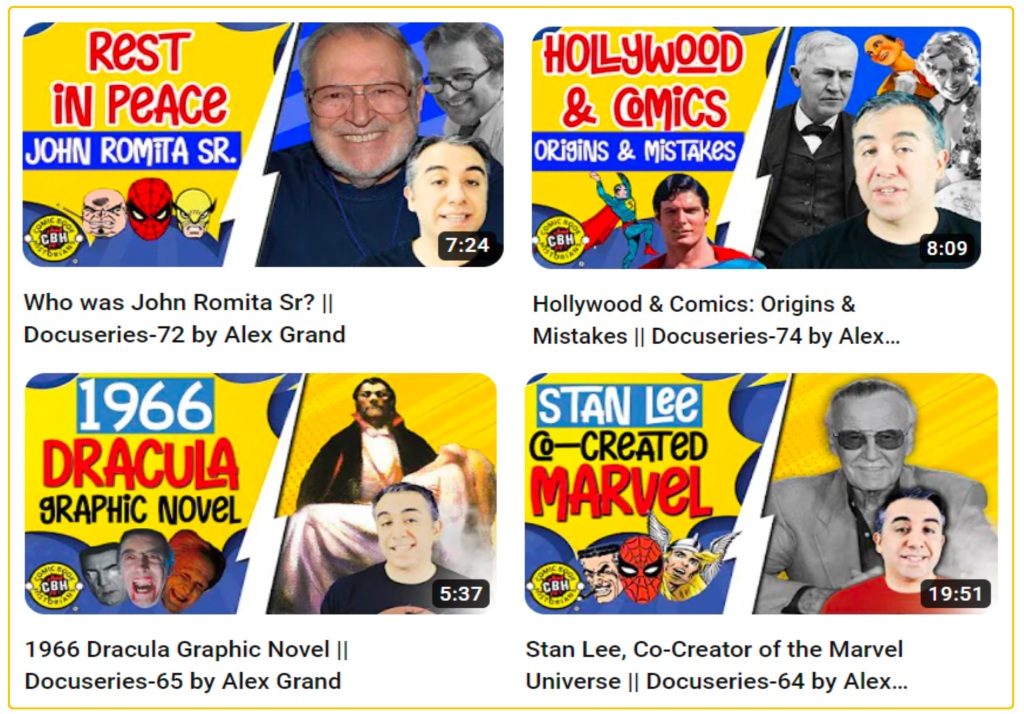
Alex Grand is the head honcho of the popular and respected Comic Book Historians, a website which also has a store that sells made-to-order merchandise featuring public domain artwork by Jack Kirby and Steve Ditko that he presumably does not share any profits with their estates when said merchandise is bought. Grand is a great example of the self-glorifying fan-turned-presence on the periphery of comics; Grand couldn’t break into comics himself, but being an authority is the next best thing.
And so, we see Alex Grand’s face. A lot. Irving Thalberg made a lot of sense when he once said “credit you give yourself is not worth having…”
Grand is also hawking his book, “Understanding Superhero Comic Books” which, to be fair, I haven’t read and is possibly a response to the convoluted continuity-based super-hero comics of modern times, I don’t know. I’ll review it when I get it, though I’d argue that a genre that was “understood” by children in 1938 doesn’t need a book in 2023- but maybe I’ll be pleasantly surprised. Grand isn’t untalented and sometimes, frustratingly, creates engaging pieces with factual information.
At the same time, he speaks authoritatively about the origins of things when he is, in fact, speculating– as his entire scope of knowledge outside of his profession appears to be comic based, he does not know to mention Patrice Lumumba when declaring to his audience that he has the “secret” history of the Black Panther– he wouldn’t know about Lumumba, instead tying together Golden Age characters that he believes Martin Goodman might have wanted to trademark (!)- and, worst of all, takes Stan Lee at his word when Lee was doing a recording session that Roy Thomas had to be at to prompt his failing memory. Whew!
So, it was with some trepidation that I began to go over an interview Grand had done with Roy Thomas which was posted in November of 2023. Because frankly- I hoped Grand had done a good job. We need someone who is prominent to serve as a prolific interviewer and really set the record straight- ain’t like these creeps are gonna talk to me.
The importance of factual, research-based historians is even more pressing when you consider just how disgustingly BAD the “comics press” is these past few years. Talk about misinformation- you’ve got terrible sites with “writers” who literally just find anecdotes or pages from Origins of Marvel Comics and make articles about them with no amount of fact-checking.

So, the pressure is on Grand and Comic Book Historians to not only set the record straight- but to serve the record. To call yourself this takes a level of audacity and confidence I can admire- if you can back it up. Grand, unfortunately, does not- at least in the interview(s) with Thomas I went over.
Please remember, Thomas is not being feted and sought-after like the elder statesman he is often presented as these past few years- he and his manager are actively seeking out websites to present their press releases, full of falsehoods and agendas which seek to reaffirm the image of Thomas they’ve been cultivating- this is a makeover campaign, plain and simple- and the purpose of it is to maximize Thomas’s credits and finances from the lucrative convention market. (See our other exposes on Thomas and Cimino while sifting through our devastatingly brilliant articles.)

For these guys, it’s about clicks, attention, notoriety- the bragging rights of hanging out with an actual Marvel Legend. They don’t choose the path of staying anonymous and letting the work stand for itself- it could never occur to them.
We begin the interview with a very telling as well as very worrisome statement from Grand at the outset:
- “Roy and I have developed a friendship over the past 6 or so years…” – Alex Grand, Comic Book Historians

Thomas naturally begins by going over his memories of comics from childhood.
- “Yes, I even remember telling some little kid… explaining what I liked about All-Star was the fact that all the heroes were in it together and they knew each other. I knew exactly what I liked from that moment and I was just disappointed there weren’t more comics like it. They never really put the Marvel characters together, you know, The Torch, Capt, Submariner together.”
This statement speaks volumes to me insomuch as people might think I’m unfair to comment upon anyone’s youthful or childhood decisions- usually I’d agree, except this is another case of the childhood sentiment completely setting the entire adult trajectory, outlook and career of a grown man. Therefore, it’s not a criticism but a valid observation to keep in mind when considering Thomas’s output.
- “There was a very popular show, Kukla, Fran and Ollie… Huge show on TV. Kukla and Ollie are puppets, and Fran (Allison) was a live-action woman. And so, I made up my own character, and I just took Kukla, Fran and Ollie, and I made up two characters called Cuckoo La Fran – new live-action woman and Ollie became Ozzo, who was a a sea serpent or a dragon or something. But it was just, you know, doing a little bit of everything.”
- (GRAND): Yeah. So, you were creative with characters from the beginning.”
Uhh… to be fair to Grand here, it’s entirely possible he’s being polite. I don’t think taking Kukla, Fran and Ollie and creating ‘Cuckoo La Fran’ makes you “creative with characters from the beginning” per se. And yes, I recognize Thomas was a child at the time of this, but again- this is literally what he has done his entire career as an adult too!
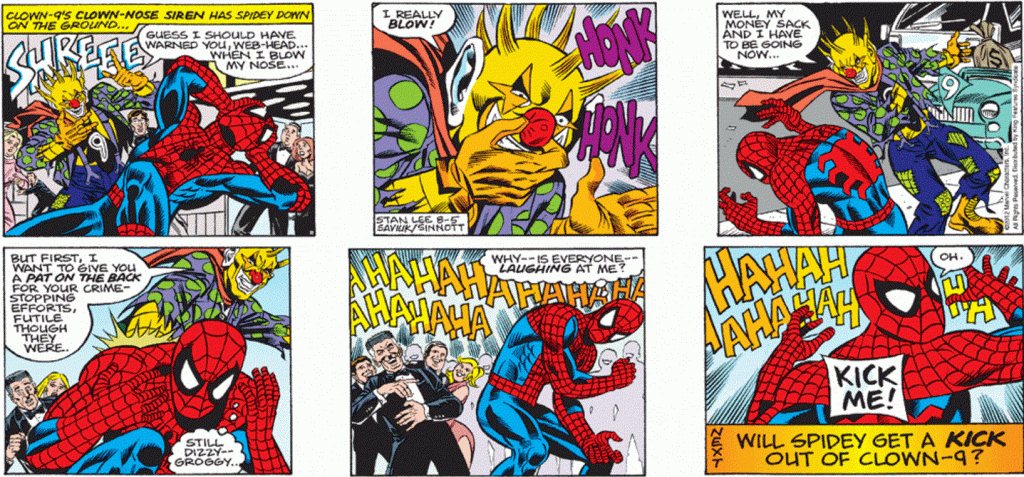
- “Biljo was going to take over as the publisher editor of the magazine, which by now was photo-offset, at least. So we could print 500,000 copies instead of a small number. He was going to be Captain Biljo, that was his character, and I was going to be Corporal Roy. I was like the Robin to his Batman and he printed up flyers and sent them all out.”
Thomas, here talking about the early days of ALTER EGO, delights me when I learn that he was going to be referred to as ‘Corporal Roy‘.
- (GRAND): “I never was able to ask last time, did you ever have any relationship or conversations with Martin Goodman ever?”
- (THOMAS): “No, about the closest I came was when Stan had me write this memo saying that we should get some character, and that was the first time I think I had any contact except there maybe, “Hello” to Martin Goodman who had an office way down at the other end of the hall.
- Once in a while, he might have stuck his head in but I never had any relationship with him. He had once, when he went to Florida for over Christmas, he sent everybody a bunch of oranges. Actually, I didn’t get any, so I figured, “Okay he didn’t know me.” So, I had very little relationship with Martin Goodman.”
I think it’s unintentionally hilarious that Goodman- often described as an acute penny pincher with an overbearing attention to detail- didn’t get Thomas any oranges! More importantly, look at how little interaction Roy Thomas, the supposed “protege” and heir of Stan Lee had with Martin Goodman, the man that created Marvel Comics and approved every single thing they did while he was a part of it: he barely knew the man, had no inclination of what was said to whom and didn’t even register as someone important on Goodman’s radar.
Goodman was still asking about Bill Everett but didn’t know who Thomas was. That is crucial for someone like Thomas with as many claims as he makes. And yet another example of someone getting all of their information about Goodman from one source: Stan Lee.
- “The weird thing too is that it was 1968 and that’s the year we turned all the books… Well, when I say “we”, of course, it was Stan and his decision, Goodman especially… Turned all the anthology books into their own separate titles. Tales of Suspense became Captain America and an Iron Man.“
No, it was Goodman’s decision and in other interviews, both Thomas and Lee shared that they had some degree of trepidation in regard to expanding the line but had to obey Goodman’s edict from on high. Interesting how it becomes “Stan and his decision” but it’s also possible that, at 82, Thomas is a bit confused.
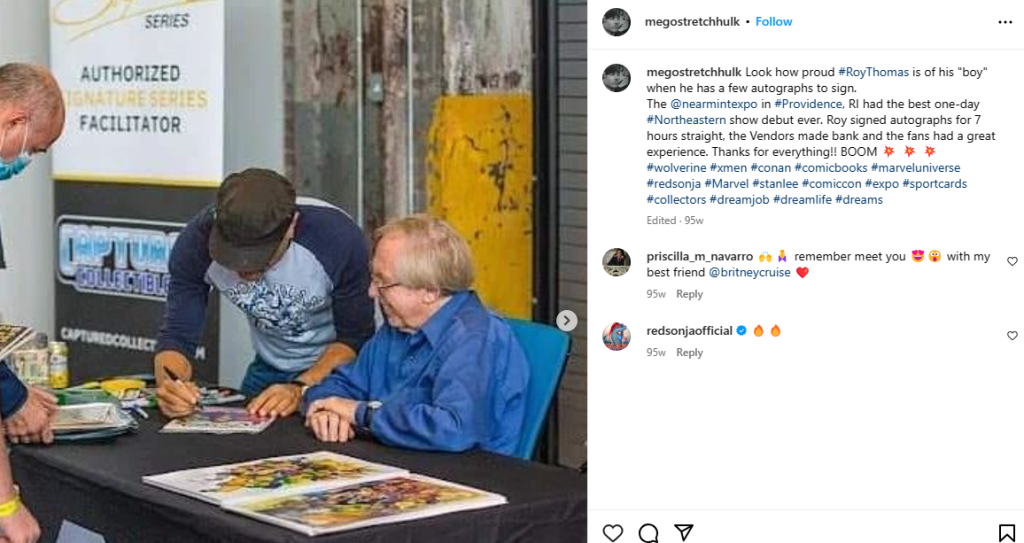
- “I didn’t know this at the time but evidently, Stan began to look around for going to DC. I guess he held a meeting with some DC people once. Although again, he didn’t bother to tell his lowly assistant editor. He was just very unhappy, that I knew, under the people.”
Lee may have flattered himself to think he could do that, but without Kirby and other artists to write the stories he would dialogue and take script writing credit for, Lee would have floundered at DC and likely knew this since he would be dependent upon DC allowing the Marvel Method of storytelling. See also interviews around this time where Lee shares that he thinks he can break out of comics by writing poetry, etc. since his name now has “hip” credibility with college students, etc.
- “I was going to be his story editor – not editor but story editor. Stan didn’t like to give out titles. He had been always the editor. He had always been the art director. He didn’t want a full editor. He didn’t want somebody else to have the title of art director, so he took Frank Giacoia, a good artist, “assistant art director” even though there was no real art director at that stage.
- And I was going to quit. I was really starting to almost make feelers to DC about quitting just because I didn’t like the fact that Stan refused to call me editor-in-chief and I was just there to do the stories, and to be his little troubleshooter. It just annoyed me and I hadn’t got much of a raise.”
Oh, how fickle is man! Here we see that Thomas, the HEIR and PROTEGE of Lee, was ready to bail as early as the Cadence takeover of Marvel since he was there just to be Lee’s little troubleshooter. Such loyalty! All over a TITLE. It makes sense, considering how much Thomas plays up being a former Editor in Chief today in his comic convention propaganda- too bad he barely lasted in the role but that’s another topic.
- “But at least, there was never any question anymore that subject to Stan, and as long as I kept out of the way of Verpoorten’s deadlines, I was in charge of Marvel Comics… But with Stan there. I mean the second banana to Stan is way down on the pecking order, but that was okay with me.”
Sounds like Houseroy alright.
- “What we figured out eventually was, the reason is that once Cadence Perfect Film bought the company, they were interested in the licensing. And if you change the characters too much or if you get rid of a character, or you change its status too much – have the character get married, have him go through this or that change. If you change them very much, all of a sudden, it might affect their marketability in the commercial aspect.
- It took us a while to figure that out but we figured it.”
Here, Thomas gives justification for Lee’s command to Thomas and Friedrich to only give “the illusion of change” in the Marvel titles from then on out- while I’m sure there’s a degree of truth to the licensing story, the major reason for no real change is because the generator of ideas and characters had left Marvel so Marvel would, for the most part, settle into a grim pattern of regurgitating departed creator’s ideas for the next several decades.
- “You were mentioning, my influence, I wasn’t out to do any of that. I just was out to be Stan’s number two guy.”
And are still working, in your Eighties, to maintain that perception.
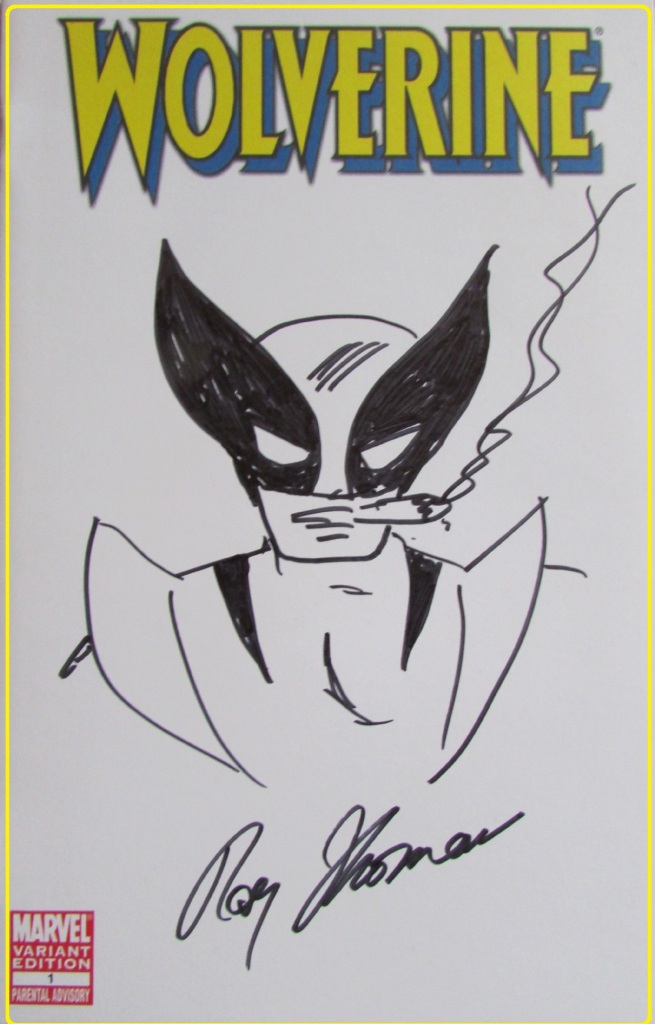
- “I just inclined to have them be swiped from the basic concept of the book I had read back in the `50s called, This Island Earth.”
John Byrne called Thomas the “Super-Adaptoid” and for good reason.
- “He showed me some characters he wanted to use in the book. One of them, I like this name Thanos, but that character is too skinny. “Make him a big character.” I was thinking of like Darkseid. I said, “Make him a big bulky character.”
Thomas admitted Thundra was a swipe of Big Barda, Morbius was ripped off of Kirby’s Count Dragorin, so we know Thomas was devouring the FOURTH WORLD books.
Tony Isabella even admitted that Thomas told him to use the name ‘Tigra‘ when developing the Marvel character of the same name- “Tigra” being the name of Orion’s mother in NEW GODS. All Thomas does is borrow someone else’s idea and then call himself the “creator”. Fan fiction writer is maybe more applicable.
- “However, he tried to show me some characters once, they weren’t going to let him do for the Legion. Because he had an idea about a whole mess of characters he wanted to add to the Legion, and he showed me a bunch, and apparently, I don’t remember it. One of them, it wasn’t the same character, but it had the name Wolverine. Of course, I didn’t need Dave or anybody else tell me what a wolverine is, I was interested in animals and zoology.”
Again, Thomas mentions his boyhood passion for zoology to defend his late-in-life creator claims for Wolverine. It’s fantastic.
- “A month or so before, I called Len Wein into my office and I told him, “We got a lot of Canadian readers. I’d like a Canadian hero.” And I said, “I want to call him Wolverine. He’s short because a wolverine’s a small animal.” I remember Len had done some things with foreign accents and I said, “Well, see you try a Canadian accent.” That’s half a joke, but I think Len took me seriously. It’s actually, you just say the same thing and say “-ay” at the end, I think, was the Canadian accent at that time.”
Wein said in print that Wolverine’s stature was never brought up to him and that Wolverine’s name and nationality were the only aspects that Thomas delivered to him.
- “And Dave Cockrum, I suspect his Wolverine face may have been the same, since Wolverine had always been masked with issues of Hulk. When he takes off his mask he probably had the face that Dave Cockrum had made up for his own Wolverine or some other face.”
Shouldn’t the man painting himself as the CO-CREATOR, Mr. Wolverine himself KNOW all of this? His lack of details betrays the massive connection he’s cultivating in order to capitalize on Wolverine residuals. Just gross.

- “We’d get really angry… and I’m sure Stan, at various stages, was really mad at me because I was causing him trouble with Landau and everything. And I got mad at him and I’ve seen some things, I sent letters to him that I’m just as happy that Stan didn’t see. 90+% of the time, I had so much respect for Stan that I really would have hate quitting Marvel especially since he was right there. All I ever wanted was to be his second in command. I never had any other…”
Heartbreaking. Curious about “I’ve seen some things…” and how Thomas compartmentalizes and rationalizes them. And you’ve got to shed a tear at ‘All I ever wanted was to be his second in command…” Colonel Thomas, ten hut!
- “But he’s not the 99% genius that made Marvel. He’s a good part of it, maybe he didn’t get enough credit, but he doesn’t deserve all the credit either.
- So, Stan had been very upset when Jack left. The more so, since he learned about it when Jack called him one day and said Jack was leaving, which was not a nice way to handle things. He’s a nice guy, but he was no more of a saint than Stan or anyone else.”
Note that all Grand asks is about any interactions Thomas may have had with Jack Kirby when he returned to Marvel in the 70s‘. Notice Thomas proactively offers numerous digs at Kirby even when this wasn’t remotely the question. It’s important for the Lee Legion to dilute and discredit Kirby even when subjective and biased opinions are not the subject at hand.
Also, Kirby lived on the West Coast. What was he going to do, fly back to New York? Lee knew Kirby had issues and had told him he had to take them up with Goodman. “Not a nice way to handle things“, really?
- “This was vitriol coming out of Jack. Whether it’s deserved or not, it was not “all in fun”.
Consider Kirby’s method of coping with widespread and public theft of his contributions to massively profitable ideas and then consider that he could have put his fist into Lee’s face and likely knocked him unconscious– and knocked his toupee off, to boot- possibly more traumatic for Lee! Funky Flashman was a more humane way of dealing with those issues. Be grateful.
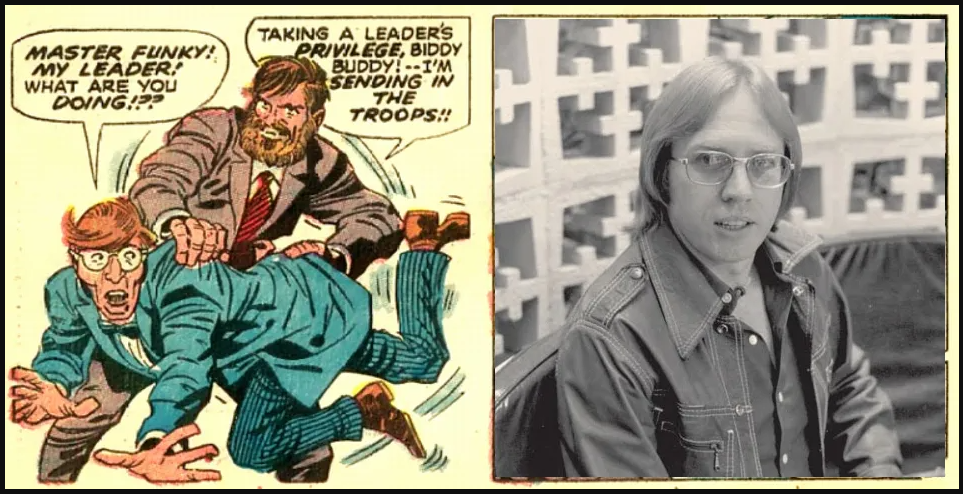
Also, let’s consider these as well: Funky Flashman (Stan Lee) benefits from a rich relative, Col. Mockingbird (Martin Goodman)- factually true. He records his sayings into a tape recorder, as Lee did- factually true. He is gaunt and bald and alters his appearance with a toupee, facial hair and more hip-appropriate clothing, as Lee did- factually true. Nothing about Funky Flashman is vitriol; it is an accurate portrait of a fradulent public personality.
- “I want to see how you feel because there’s a couple of people out there…” And he’s dedicating the general vision of the bullpen, out there is Romita, (Marie) Severin and John Verpoorten.”
- I don’t know who, I can’t remember who had said this and I didn’t even ask. He says, “There’s a couple of people out there who feel we shouldn’t allow Jack to come back.”
Is Thomas revealing who the people were who spoke against Kirby coming back? Romita Sr. makes sense when you consider his terrible comments when Kirby was fighting to get his original artwork returned. I don’t know enough about Verpooten as an individual outside of what I’d read in Comic Book Artist many years ago, and Severin mocked Kirby when he left by hanging up a cigar in tribute- very possible it was these three, who were crucial to in-house correction and promotional work and would have been in the offices.
- “Jack said, “Okay”. I let him do the plot and so forth. He was going to get credit for all this or whatever. When the thing comes in, Jack has double-crossed me. He’s taken me out of the story, out of my story, my concept, which I gave the original production manager of Marvel. Sol Brodsky had been the Human Torch.
- For about 10 or 15 minutes, and maybe longer, I really hit the roof. I mean do I throw him off the book or what? Because I was a little cooler-headed maybe than Jack, and not doing things out of a visceral need to…”
I mean, fuck Roy Thomas. The Fantastic Four are Jack Kirby’s characters. But Thomas feels “double-crossed” (!!!), because of Kirby’s superior creativity. Thomas says this is “his concept”, and admits he has a tantrum and considers firing Kirby (!)- but because HE was cooler-headed and doesn’t do things out of a visceral need to… just disgusting. Alex Grand could have offered some counterpoint to this. He does not.
- “Except again, I would never trust Jack again, on anything. But I’m happy of the fact that I made it possible for Jack Kirby to draw what amounted to his last Fantastic Four story. “
Consider the judgment and standards of Roy Thomas: a guy who trusts Stan Lee over Jack Kirby. That really says it all. And look at Thomas again finding a way to take credit for something, anything.
- (GRAND): “Now, you mentioned why you left for DC and it was the end of that editor-writer arrangement when Jim Shooter and Galton kind of were planning the creative direction of the company. Looking back now and at the time, what was your impression of that relationship between Galton, Shooter, and Stan Lee to some degree?”
- (THOMAS): “Galton and Shooter, it wasn’t Jim Shooter. They tried to put all the blame on him. They had decided, and I can see their point, that they wanted to get rid of this writer-editor situation. To think about it from Shooter’s viewpoint, I wouldn’t have liked it either.”
Wow. How comic convention circuits for aging writer-editors make strange bedfellows. While I suppose it’s possible that time has made Thomas see things differently, he literally wrote dozens (!) of insulting and derogatory remarks about Shooter, and Shooter alone, for years once he left Marvel. With zeal. And now, “they tried to put all the blame on him…” They may have tried to put all the blame on Shooter- Thomas did put all the blame on Shooter.
- “I sent it into Jim Shooter and I get this thing sent back to me right away, saying that, there’s going to have to be another layer, like of another editor in between, that was very clearly in the contract. It wasn’t that I was under Jim. I was now going to be under another guy whether he was called, whatever he was called and I considered this violation of my understanding with Jim. So, I immediately called Paul, he was at DC and said, “I’m quitting Marvel.”
- By the time I spoke with Jim, I had arranged a deal with DC where I would go to work for them as soon as my contract ran out. It felt that it was a brazen lie, and whatever other respect I have for Jim, I would certainly never believe them again. If they said the sky was blue, I’d go look out the window.
- So, I just left and Stan meant to get me to stay, but in the end Stan did what he always did…”
This is significant and this excerpt, above all others, is my main point of contention with COMIC BOOK HISTORIANS, Alex Grand and his ilk. I will grant you that Alex Grand understandably doesn’t want to make his guest(s) awkward or risk alienating or angering them… but, if you’re a HISTORIAN, you need to respond to this anecdote.
Because Jim Shooter has given a very different scenario on his blog- and I know Grand is aware of it, or if he is not, he needs to change his channel’s name. It is a historian’s responsibility to bring up this other claim.
There is no “gotcha” question to a public figure, they need to be prepared to defend their record and respond to contradictions. Grand and his website do a tremendous failure to recorded comics history by not challenging, even in a benign way, Thomas’s claims here. And why doesn’t he? Because Grand and Thomas have “developed a friendship…“
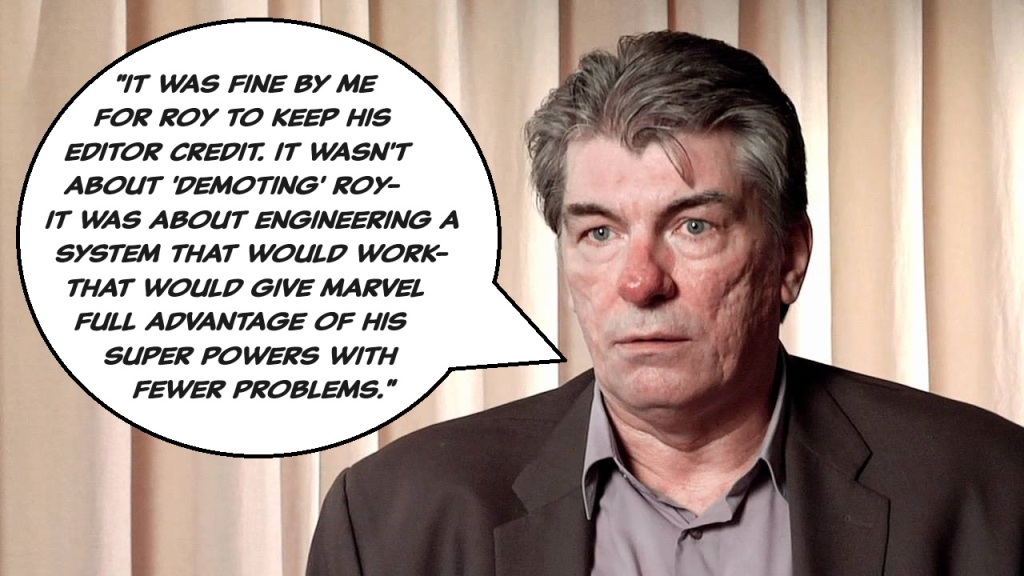
- (SHOOTER, Cont.): “But Roy had reneged. He changed his mind. One thing about Galton, he was proper about business things. Roy went over my head, and normally, Galton wouldn’t tolerate that. He would have refused the meeting. But, A) Roy was that important, B) he had already quit, so one could argue that this was a new negotiation, and C) Galton’s way of observing proper protocol was by inviting me to the meeting.
- Roy arrived. As he entered Galton’s office, he seemed taken aback that I was there. I guess he expected that going over my head was going to keep me out of it, but like I said, that wasn’t Galton’s style.
- Roy expressed his interest in continuing to work with Marvel. Galton said he was pleased and hoped we could make that happen. Roy agreed to everything. He even seemed comfortable and content with having a staff editor overseeing things.
- Galton looked at me as if I must be crazy. It was a look that said, “This is the most reasonable man on Earth. Why couldn’t you work out a deal?”
- Roy said that there was just one thing…he’d already signed an exclusive contract with DC Comics, but it had an exception that allowed him to keep writing Conan, so what he wanted now was a contract with Marvel to do the Conan books.“
- Galton looked at Roy as if he must be crazy. It was a look that said, “Suddenly I understand the problem.”

- Annoyed big time, Galton told him that we weren’t interested, that Roy had wasted our time and basically, to get out of his office.” – JIM SHOOTER, AUGUST 2011
It isn’t about trying to instigate a Bleeding Cool-esque debate between two aging comic book professionals. Again! This is something called Comic Book HISTORIANS. How do you call yourselves that and NOT ask about Shooter’s claims? Your obligation is not to the comic book writer, it is to your audience and the future audience that will someday see this!
- (GRAND): “Now, when you joined DC, you said that was through Paul Levitz and you had called him.”
Note that Grand tries to paint Thomas’s move to DC in 1980 as similar to Kirby’s much heralded arrival in the early 70s; the difference is that Thomas sought out a fellow fan-turned-pro to look for work and Carmine Infantino actively courted Kirby.
- “I didn’t want to do any of them. I don’t think I ever did a whole Batman story. I think I dialogued one, plotted another, and gave it to Gerry Conway to finish.”
A pattern continues throughout Thomas’s entire history where he “plots” something and then hands it off to someone else to “finish”- all Thomas wants to do is fan fiction about the Justice Society. Hey, nothing wrong with that! But, similar to Lee, his actions and his statements run counter to his claims as being this great CREATOR.
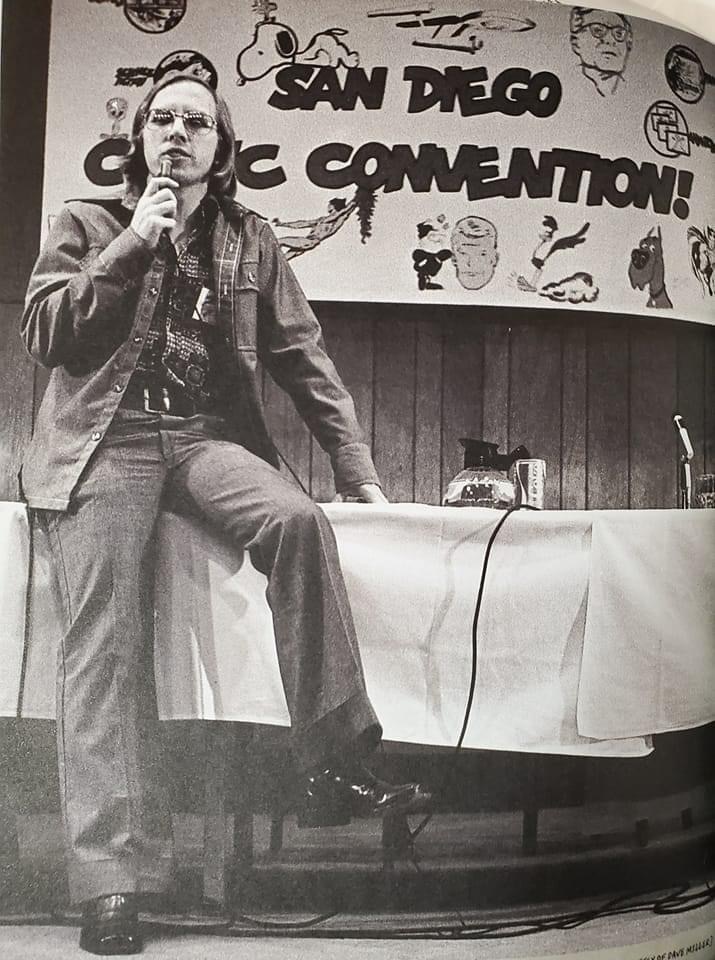
- “War is one of the few things the human race does well together. As a result of that, it made good comics.”
-wait, what
- “They’re trying to advance Wonder Woman but then suddenly they give six or seven or eight pages at the back of the book to the Huntress series. That was it with me. I said, “If I agreed to do Wonder Woman as a comic book, I didn’t agree to do Wonder Woman as two-thirds of the comic book.” So, I left that book with a certain amount of bitterness.”
Wow, what an absolute BITCH Roy Thomas is. Because Wonder Woman’s stories became shorter, Thomas blows his top and storms off, again in a tantrum. This is the same man that calls Jack Kirby angry and bitter, and yet Kirby didn’t throw a tantrum when Lee took away his Silver Surfer, did he?
- “I will say, they did a thing – they told Len Wein who was the editor on All-Star Squadron that he should basically leave me alone as the writer and not try to tell me what to do. What he did do instead was to refuse to show me the covers in advance, and that kind of annoyed me.”
I found this genuinely perplexing only because I’ve read Thomas himself state more than once that Joe Kubert was his all-time favorite comic artist and that, while he never got to really work with Kubert on a story, he did “get” him to do several covers for All-Star Squadron. If anyone knows what Thomas is referring to here, please fill me in below.
- “Vinnie Colletta had fixed me and Jenette up with a date while I was still at Marvel. So, we actually went out two or three times. We got along all right, but I had almost no contact ever with her.”
Wow, and Neal Adams ended UP with Jenette Kahn, living with her for an entire year in a relationship. Another reason for Thomas to resent the superior Adams!
- “Thinking Marvel could use some good press. One thing to do would be to hire back a guy who’d been faring well about five or six years before…”
Thomas flatly denies that he’d written multiple letters to Shooter, some a couple of years before his return in 1987, pandering to be accepted again and instead portrays it as him trying to get Marvel some ‘good press’- because, in 1987, with WATCHMEN and DARK KNIGHT at its height, that’s what Marvel needed.
- “Well in 2000, I hit my rock bottom. It wasn’t really bad but for me it was a rock bottom around 1999 – 2000. I wasn’t getting any assignments from Marvel anymore. Conan had been lost as a license. I was getting a little work but not that much.
- I thought, “Well, maybe Stan could give me some work.” We’ve worked together on a lot of things and in the middle `90s, he had almost started his Excelsior line of comics and I was going to write one or the other. And so, I said, “Do you have some work you can toss my way from California.” He says, “I need to get another writer for the Spider-Man strip.” And he says, “Would you be interested in doing that?” I said, “Yes.”
- I said, “$300 a week is fine with me. When do I start?” It was immediately. I worked from 2000 until Stan died at the end of 2018, 18 years later. I wrote a few more weeks and then, they just… In fact, I even started another story they never published, and about the time they would have had to put my name on it, they killed the strip instead, and I was kind of sorry about that. But I did 18 years of it, and I liked doing it, especially after Stan kind of lost interest in it and he began to not pay any attention anymore. That way, Stan and I didn’t have that many discussions over story lines and things. “
Roy Thomas toiled on the syndicated Spider-Man strip for nearly two decades and never got a raise.
- “Even though I didn’t want to create characters, I had to create characters. I had to do something to earn my money, and so did the other guys. What we did was we tried to combine what we knew we had to do – just do Stan Lee, Jack Kirby-ish kind of comics with what we wanted to do.”
Counter that statement with the numerous documented times that Roy Thomas claimed he isn’t known for creating a lot of characters because he “knew he wouldn’t own them“- when, in reality, his lack of originality and imagination were the main barriers to generating anything truly unique and lasting. He will always be known as a secondary figure, in the right place at the right time. But even secondary figures can cause first class damage, such as the ongoing retconning of Thomas’s place in the pantheon of Marvel’s creators.
Alex Grand likely knows this and knows Thomas’s story has changed. So why doesn’t he press the issue? Because Grand, like many, wants to be a part of it- a part of the magical tapestry that engulfed him as a younger man and set his heart and imagination ablaze. He dares not risk that detachment from his younger self- who could only dream of rubbing elbows with Thomas and Jim Steranko- so, finds ways to compromise and rewrite history, an active part of fandom having their way without having to face the numerous professional slights and injustices that many creators have had to suffer.
These guys will always maintain the plantation. Why? Because they’re fanboys. Like Thomas. Lacking in originality or an intangible, absent of charisma and principle, they seek only to keep the machine going and appoint themselves in various tiers of importance; an endless circle jerk of bland, aging males who can’t bear to be torn from the teet of comforting stories that were never real.
And the comics press won’t ever confront them on it either. Survival is paramount: compromise has to come. They tried to fight it; they failed. Those pop-up ads pay their bills. They can’t alienate Marvel or DC. Go with the flow, rinse and repeat. The enthusiasts inherited the world. Their passions and small mindedness narrowed history for the rest of us, and real history continued to be erased. Who then will speak up when the geeks control the wheel?
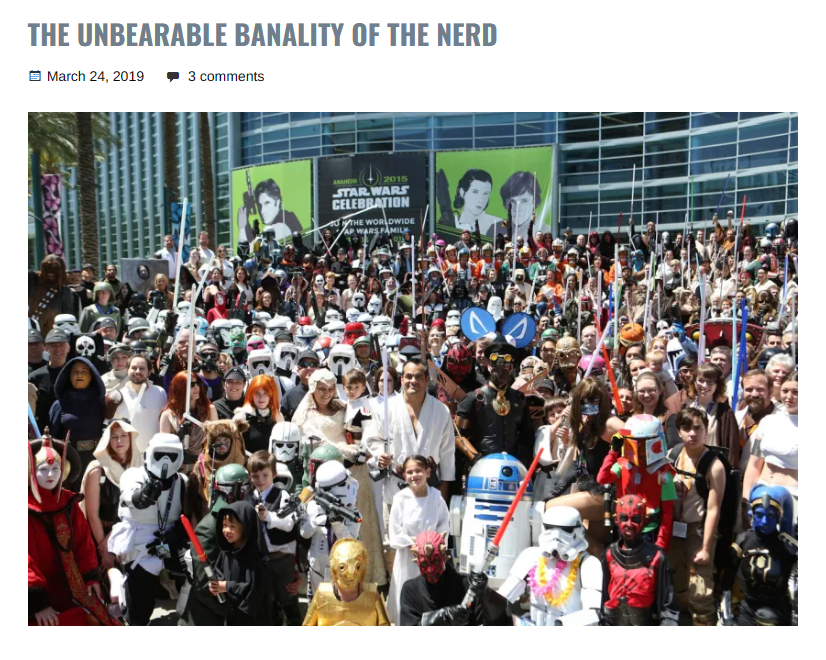
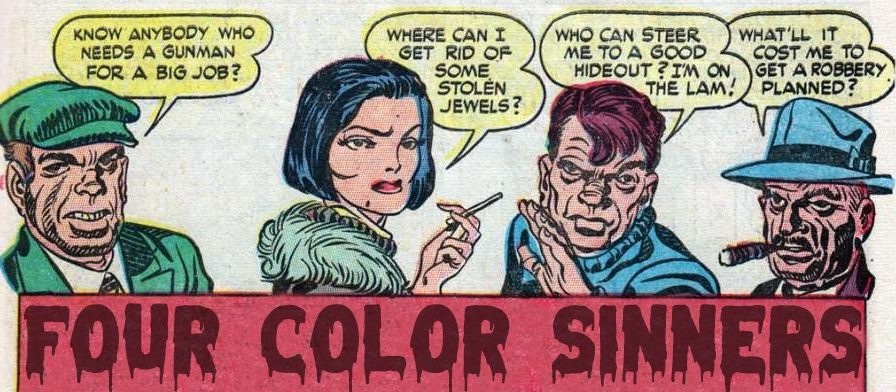
Thomas’ boyhood passion for zoology might have been inspired by Lee’s boyhood passion for Chandhu and Chu Chin Chow (unprompted even). It’s heart-rending to hear the tale retold of his many years of loyalty (and absolute sellout of Alter Ego on Lee’s behalf) being rewarded with a low-paying anonymous ghostwriting gig rather than the SLMI vice presidency that was up for grabs. The vitriol he directs at Kirby for thinking so little of him is unsurprising; it would be worse if he knew the reality, that Kirby didn’t think of him at all.
LikeLike
Alex is simply letting the legends speak for themselves it isnt his place really to confront them on things that may be a simple case of a faulty memory… cmon, when someone has worked in comics for sixty years, you are bound to forget some stuff. Lets be fair…
LikeLike
I am fair. This is the entire point of my work. To take their exact statements and point out mistakes. They should be thanking me.
LikeLike
Alex Grand is a nice enough guy and I enjoy his content mostly but he does like attention!
LikeLike
I admire your research and writing style (the 80s era Captain Marvel article from Roger Stern’s Avengers was well done) – but you honestly come across as bitter and angry when talking about Stan Lee and Roy Thomas. Slightly unhinged even.
And I don’t like your comments in regards to Ed Piskor. You don’t come across as someone who wants to help or ‘believe women’ but rather as someone who is jealous of comic creators and wants to break all the toys like an upset toddler.
Do better and sign your name to your work coward.
Jeremy
LikeLiked by 1 person
Considering I’ve been a full-time activist for years who helps to sustain half a dozen outlooks for abused women with children via monthly donorship, as well a police record for assault (due to said activism), I’ll shrug off your ‘coward’ smear. We exist in an era when women, people of color, and transgender/lgbtq youth are regularly harassed, tormented and fucked with. I could care less how unhinged you think *I* am- I don’t decide laws that infringe upon people. I wrote an article about Stan Lee and you whined about it. Boo hoo.
I grew up as the product of a teenaged pregnancy. I was in those shelters- the ones where a single Mother could have a son there- most only allowed daughters- I do believe women because I’ve been around those women all my life.
Also, to be “jealous” means to covet what someone else has. I don’t want to be like Ed Piskor. I don’t want to be a comic creator or I’d have done it. Piskor, like Cimino, has been in proximity to me and knew I called them out and would happily go outside of those places of proximity to discuss it on the street. Both were terrified to be confronted by anyone outside of an internet environment. Andrew Pepoy is another. Girls at conventions told me things.
So, poor decision making? Yeah, perhaps. But coward? I’ll show up to Ed Piskor or Cimino any day of the week, cupcake. And make sure the sunglasses start serving a purpose. Jealous of “creators”- you think Piskor is a creator? You think YOU’RE a creator? Hah! Thanks for the comment! 😉
LikeLiked by 1 person
Have you ever read the issue of Alter Ego (sorry, I don’t have it handy and can’t remember the exact issue) where Roy painstakingly (and hilariously) describes the many many projects he couldn’t quite get published, each more derivative than the last?It’s worth a column. Hell, it’s worth a hundred columns.
LikeLiked by 1 person